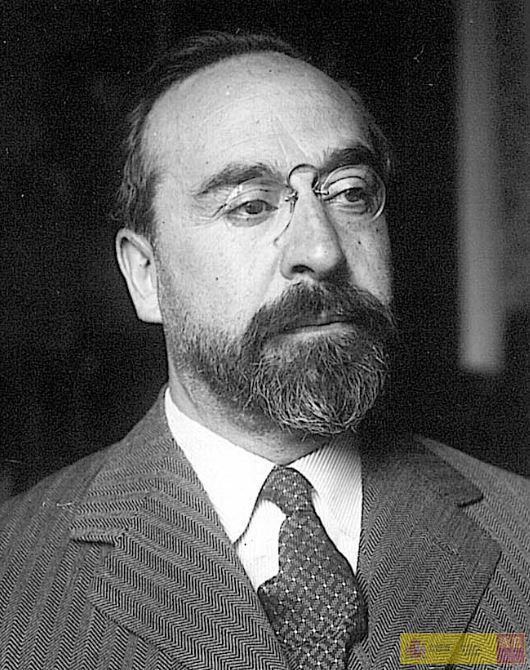 Persona - Ríos, Fernando de los (1879-1949)
Persona - Ríos, Fernando de los (1879-1949)
Identificación
Tipo:
Persona
Forma autorizada:
Ríos, Fernando de los (1879-1949)Otras formas
Fechas de existencia:
Ronda (Málaga, España) 1879-12-08 - Nueva York (Estados Unidos) 1949-05-31
Historia:
Catedrático de Derecho, escritor, político, ministro y embajador español.
Nació en Ronda (Málaga) en 1879. Hijo de José del Río Pinzón, militar residente en Filipinas y sobrino del político Antonio Ríos Rosas y de Fernanda Urruti Rodríguez. Era pariente lejano de Francisco Giner de los Ríos, fundador de la Institución Libre de Enseñanza (ILE) y de Hermenegildo, su futuro suegro. Se casó con Gloria Giner de los Ríos García y tuvieron una hija, Laura de los Ríos Giner, que se casará con Francisco García Lorca.
Estudió el bachillerato en el Instituto de Córdoba y se licenció en Derecho en la Universidad Central de Madrid en 1901, doctorándose en la misma universidad en Derecho en 1907. Amplió su formación con diferentes estancias en el extranjero.
Fue profesor de la Institución Libre de Enseñanza y formó parte del Centro de Estudios Históricos (1911-1912). Catedrático de Derecho Político Español Comparado de la Universidad de Granada en 1911; renunciaría a dicha cátedra en 1929 por su oposición al régimen de Primo de Rivera pero tras la caída de éste, se reintegraría en su puesto. En 1930 pasó a la Universidad de Madrid ocupando la cátedra de Estudios Superiores de Ciencia Política y Derecho Político. Su cátedra la compaginó con numerosos cursos y conferencias en distintas universidades e instituciones académicas del mundo. Finalizada la Guerra Civil, el nuevo régimen franquista lo separó definitivamente de su cátedra en 1939.
Ingresó en el Partido Socialista Obrero Español en 1919, siendo elegido al año siguiente miembro del Comité Ejecutivo. Diputado a Cortes por Granada y Madrid, en la elecciones de 1919 y 1923 respectivamente. Se mostró contrario a la república de Primo de Rivera, aunque encontró escasos apoyos dentro del PSOE, con la excepción de Indalecio Prieto. Tras las fallidas insurrecciones de Jaca y Cuatro Vientos pasó una breve estancia en la Cárcel Modelo de Madrid. Formó parte del Gobierno provisional de la República y durante la misma fue diputado por Granada en las legislaturas de 1931, 1933 y 1936. Además, ocupó distintos ministerios durante el Gobierno de la República: Justicia, Instrucción Pública y Bellas Artes y Estado. Al estallar la Guerra Civil se encontraba en Ginebra; desde allí pasó a París donde colaboró con la República gestionando la compra de material bélico. De 1936 a 1939 fue nombrado embajador de España en Estados Unidos. En el exilio, formaría parte del gobierno de la República formado en México y presidido por José Giral como ministro de Estado, entre 1945 y 1946. No abandonó la práctica docente ya que impartió clases en la New School for Social Research y en la Graduate Faculty of Political and Social Science; entre 1941 y 1942 hizo una gira de conferencias en Cuba. Falleció en Nueva York en 1949. Sus restos fueron repatriados a España en 1980 y descansan en el Cementerio Civil de Madrid.
Fecha del evento: 1936 - 1939
Fecha del evento: 1923 - 1930
Ocupaciones
actividad:
Profesión (Es realizada por):
actividad:
Profesión (Es realizada por):
Profesión (Es realizada por):
actividad:
Lugares
otros:
Lugar de Nacimiento:
Lugar de Defunción:
Fuentes
Relaciones
Relaciones asociativas :
Relaciones familiares :
Enlaces Externos
Repositorio institucional de la UC3M:
Diccionario de catedráticos españoles de Derecho (1847-1984)
Biografía virtual:
Web institucional:
Portal de Víctimas de la Guerra Civil y Represaliados del Franquismo
Catálogo de Autoridades:
Documentos
Productor de:
- No hay Unidades de Descripción asociadas.






